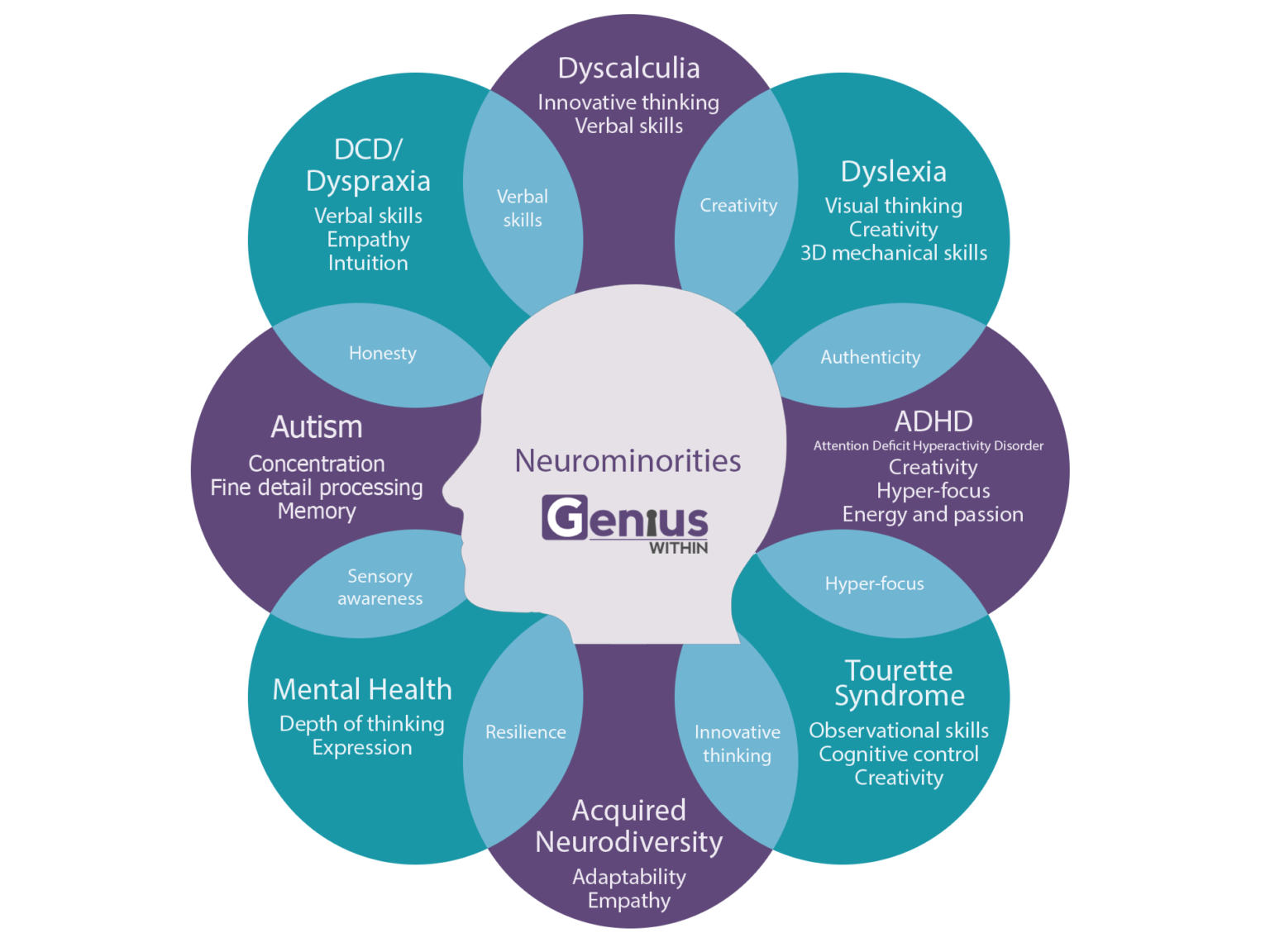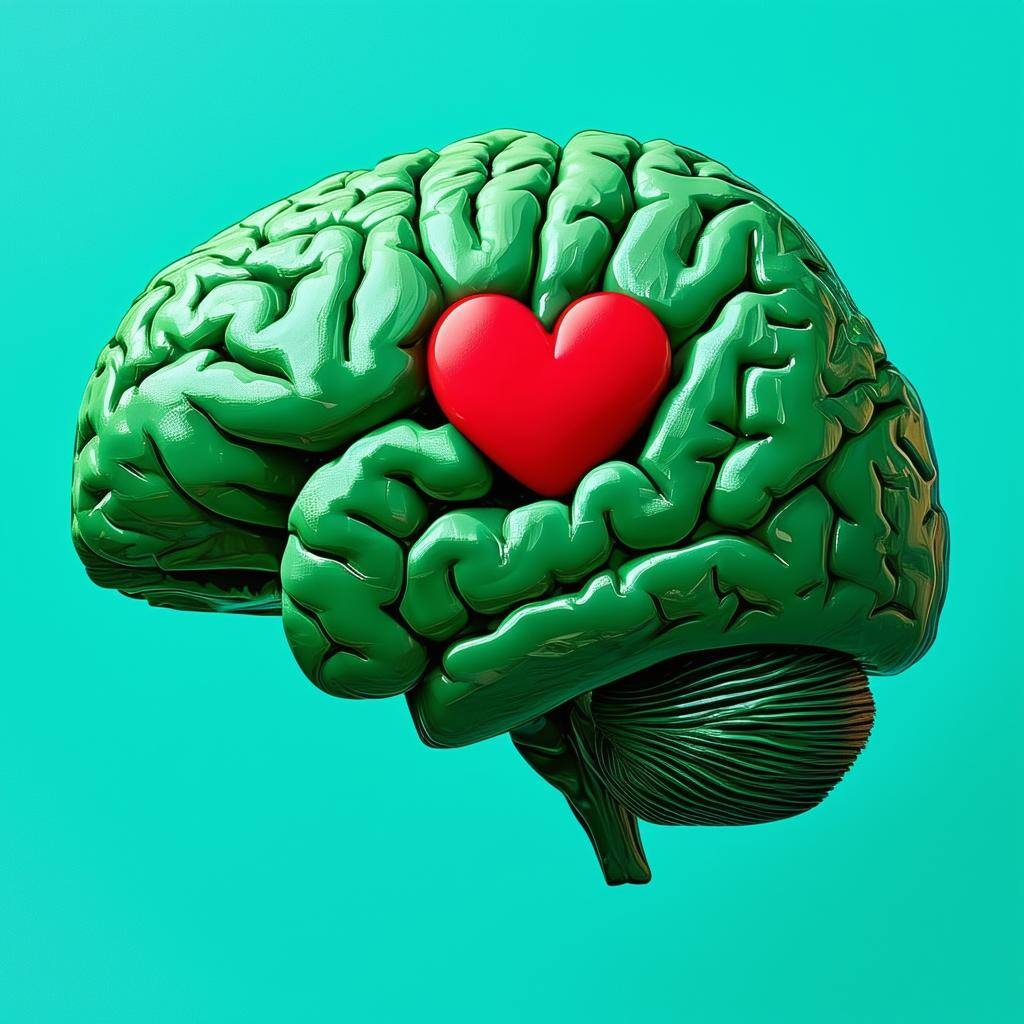What is it Like to Work With KD?
I am told by my clients I am gentle, approachable, easy to talk to, and silly. However, working in a room with just one other person can make it...
4 min read
KD HOLMES, LPC, EMDR CERTIFIED, BTTI TRAINED
:
Mar 6, 2023 9:34:52 AM

Among the plethora of new terms circulating on social media, one that currently stands out to me is Neurodiversity. This term has not only fostered self-compassion and self-acceptance within myself but has also extended to embracing the unique workings of my brain.
A year ago by best friend was diagnosed with Autism. She is exactly like me; socially anxious, excitable, prone to overthinking and hyper focusing, and she struggles with anxiety. I remember thinking I must have it too. So I did some online tests, and it turns out that I do not have Autism. Some of the questions were true for me and I knew this meant something, but what exactly?
Once I referred to a client as autistic-ish and a doctor told me there's no such thing. But it's just not that simple.... this all has to do with Neurodiversity. For a long time I would see in my mind a cluster of traits occurring together that would signal that a person might have other traits in this area. It probably made my clients think I was some sort of genius but the truth is I would just see how traits and problems occur together. This allowed me to project and ask the right questions that fit the client's symptoms and provide the most accurate understanding to treat the client.
ADHD Symptoms: hyperactivity, concentration problems, hyper-focus, rumination, social anxiety, high levels of empathy, and detail aware along with pattern recognition.
I always knew that I was different, I talked faster than most people, I'm easily excitable, I've been told, that I'm a lot. I'm riddled with sensitivities in social environments that has consumed so much of my headspace. Along with all these traits I also have a repetitive part of my brain that can hyper focus on subjects. This is how I am Neurodivergent. These traits have presented as social anxiety, obsessive anxiety, and life of perfectionistic living to escape my inner turmoil.
For most of my life, I compared myself to Neurotypical people looking for acceptance, to fit in, and ultimately break the feeling of loneliness that accompanied my childhood and teenage years. This loneliness was due to some of my neurodivergent deficits one might say. My relationship with loneliness did not end when I found people to connect with on a deeper level in my 20s. I still had memories of the loneliness in my body. My mind remembers things like photographic memories even of emotions. It is probably another neurodivergent trait. But belonging to a group of friends who accepted me, changed my life completely.
Learning the neurological way that my brain functions has allowed me to completely accept the biology of me. This is the innate way that my brain experiences the world. As a trauma Therapist, it's easy to get caught in the trap that all things are related to trauma. That all mental health issues go back to some traumatic event that happened in your history. This philosophy and way of looking at mental health is very helpful but does not encompass or take into affect the biological way that we exist in the world.
Socialization (where trauma falls) is just one piece of the puzzle, biology (neurodiversity) is another piece, and how we cope with these two is the last piece of the puzzle.
Neurodivergence is the way someone's brain processes, learns, and or behaves differently from what is considered "typical". Formally considered a problem or abnormal, scientist have come to understand that Neurodivergence actually has many benefits.
The following is a list of Neurodivergent traits that have historically been considered negative, but as we will soon find out, are now seen as having their own unique benefits.
What if your greatest weakness also has some gifts? When we are in the thick of suffering its hard to see anything good about it. But as we learn to cope we begin to understand the "gifts" of problem.
So much of mental health focuses on categorizing, or diagnosing but many clients have several traits within a diagnosis without having the diagnosis. This is important to understand. Diagnosing is just a way to understand and thus treat people. But we are more than a diagnosis and what if these traits were telling us more than deficits.
When I got to the place where I could accept the way my brain functions and make changes due to this awareness, my mental health got better. (Trauma work helped me release the shame and allow myself to just be me. This opened the door to honor my biology.)
I am easily excitable by external stimuli, so no visual or auditory stimuli when I am preparing for bed. I must bore my senses so that I can sleep. For someone who enjoys excitement purposely boring myself has taken time and practice. Along with lots of trauma work because my need for excitement was a way to avoid feeling that was rooted in my trauma history.
But treating my trauma history included my experiences of feeling different. This trauma work has provided freedom from a lifetime of anxiety and overachieving.
For the most part I do not suffer from generalized anxiety disorder anymore. I don't worry about the things I say and how different I may be perceived. I don't repetitively think of my stressors. I am quirky, eccentric some might say. There's a part of my brain that is a genius because of the sensitivities I sense in social environments that also create social anxiety. In my office it is a gift. I am very aware of others feeling and movements. This hyper focus that naturally occurs does not torment me. I use it as my guide. I rely on my otherness. It has provided me more success than fitting in ever did. I might suck at professional functions but in my office I am very confident.
My development has increased 10 fold by embracing and taking a deeper dive into myself and into trusting who I naturally am! None of my strides could have been made without trusting myself and honoring who I am biologically. Seeing the benefits of my biology, and then making changes due to my own biological sensitivities.
What are your strengths that you have been looking at as a deficit? How much of your mental health is actually due to the way that your brain biologically responds to the world?
It all starts with self acceptance? Let's start by accepting your biology today! If this is upsetting it just means you are the part in the journey of grieving. Grieving our otherness takes time and the right therapeutic space.

I am told by my clients I am gentle, approachable, easy to talk to, and silly. However, working in a room with just one other person can make it...

After 48 years and countless therapists, I've come to challenge the traditional narratives surrounding mental health. Therapy often begins with...

I wish I could say that a moment of profound inner wisdom led me to recognize the need to rein in my overachieving tendencies and gracefully begin...